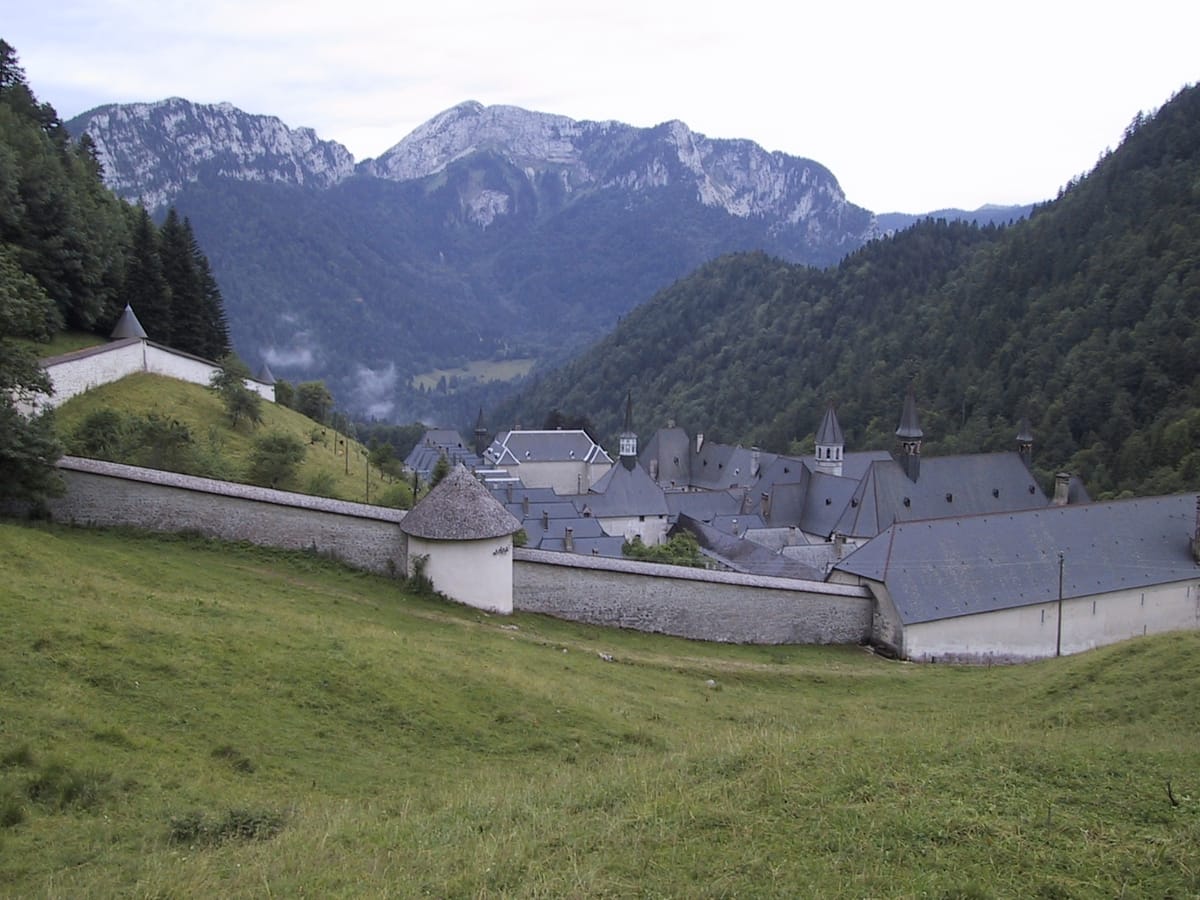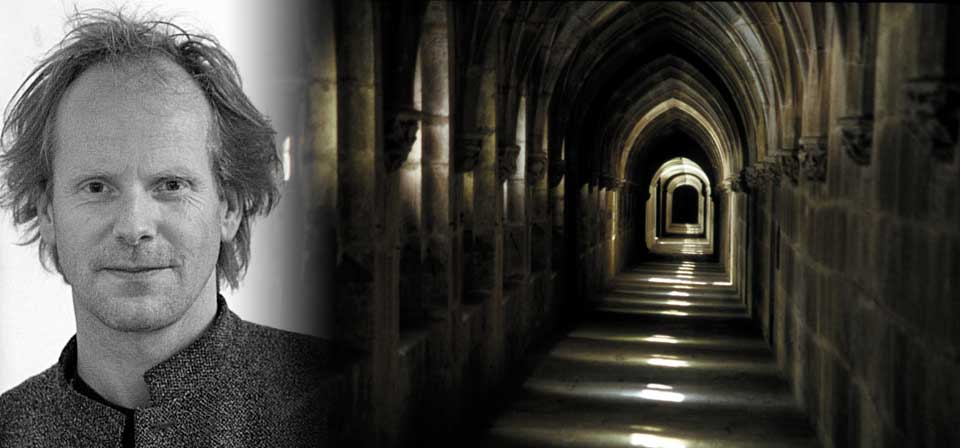The Nothing Desire

“The poor monk is lord of world.” St. John Climacus
Bruno was a rising star of eleventh-century European culture. A master of the cathedral school (the precursor to the university) of Rheims, he taught grammar, poetry, philosophy and theology. He became head of Rheims by age thirty. The most promising students flocked to him. The praises piled up: “His outstanding wisdom is the subject of universal praises—his command of language excels Virgil’s, Plato’s renown pales beside Bruno’s.”
Contemporaries called him “a gem of wisdom, a luminary.”
But it all changed.
When the archbishop of his diocese died, he was succeeded by a man named Manasses, a warped soul who obtained the see by simony. Bruno tried to look past Manasses’ faults and work with him, but Manasses’ corruption proved too much. After Manasses sold benefices and church property for personal gain, Bruno vocally opposed him, resigned his position, and left Rheims. In response, Manasses confiscated Bruno’s property.
During this exile, Bruno lived with two friends, Radulphus Viridis (Ralph Green) and Fulcius Monoculus (Fulk One-Eye). They passed the days talking about heaven’s joys and lamenting the world’s deceitful pleasures, something Bruno must have acutely felt at that time of his life. They vowed to leave the world and embrace the monastic life. The desire for the simple, devout life was hatched in Bruno’s soul.
A Church council later condemned Manasses, and Bruno returned to Rheims and his spot in the Dark Ages’ limelight.
But Bruno had changed.
The position no longer attracted him. He resigned after one year, then he and six companions set off, looking for a place to pursue the quiet, contemplative life. After a few years, they settled at a wild solitary spot called the Chartreuse. There they lived in poverty, self-denial, and silence, each dwelling in his own cell, and employing themselves by copying books.
Thus the Carthusians were born, a strictly contemplative order given over to life in a hermitage, a shaved head, prayer, asceticism, simple manual work and gardening. It is a life of thoroughgoing material poverty.
Needless to say, the Carthusian life established by St. Bruno contrasts severely with modern life. The Carthusian lives largely by himself; the Modern lives a life constantly among others. The Carthusian devotes his life to prayer; the Modern prays, if at all, only when he gets a chance. The Carthusian has no possessions; the Modern has many possessions. The Carthusian wants no possessions; the Modern desires more possessions.
But on this last point the Carthusian and Modern have a common ground. Ironically, the Carthusian’s love of poverty and the Modern’s desire for more possessions are flip-sides of the same desire, the desire for nothingness.
Hilaire Belloc once described the human condition,
“[M]an was created for beatitude, enjoyed a supernatural state, fell by rebellion from that state into the natural but unhappy condition in which he now stands, subject to death, clouded in intellect and rotted with pride, yet with a memory of greater things, an aspiration to recover them, and a power of so doing by right living in this world of his exile."
We are fallen beings, but—through our memory of, aspiration for, and ability to obtain greater things—we intuitively sense that we could be more, could have more. This “more” is God and the pure relationship with Him enjoyed by Adam and Eve before the Fall.
Unfortunately, our earthly-influenced and fallen minds interpret this desire as a signal for more earthly things—money, reputation, or any of the thousands of potential earthly goods. The desire for these things constantly streams through our heads, haunting and enticing and driving us with the possibility that we could have more.
This is why we dream so much. Dreams mentally satisfy this relentless stream of desire. We intuitively think that the dreams, if attained, would satisfy the yearning for more. If we satisfy our dreams, we presume that we will be secure and in want of nothing, and then the restless craving would be satisfied once and for all, and we could finally sit back and relax.
It is this life of constant striving and dreaming that Jesus condemned when he told the rich young man to sell all his possessions (Mk. 10:17-31). Jesus did not frown on the young man’s wealth; he frowned on his attachment to the wealth and wanted the young man, in the words of Clement of Alexandria, to “drive from the soul the vain thoughts about wealth, the excitement and distress related to it, the worries that are the thorns of existence and that suffocate the seed of life.”
Jesus, in other words, wanted the man to embrace spiritual poverty, which means a life of detachment in which a person is not concerned about himself, with the result that he is not attached to things that serve the self, like money. The result of such detachment is what the ancients called amerimnia (freedom from care) or phrontidon apothesis (putting away anxiety).
For this reason, poverty is, ironically, the state of mind desired by the restless and ambitious man who strives for, and dreams of, becoming a wealthy man. The wealthy man (in theory) has no needs or desires: Having it all, he desires nothing, and the itch for more is smoothed over, just as it is in the man who attains spiritual poverty.
The dream for it all, consequently, is just a mutated form of religion’s call to spiritual poverty. The wealthy man, in our imaginations, is detached from the world and serene like a Carthusian monk.
This irony has numerous repercussions.
First, the most obsessed success monger is merely the ignorant flip-side of a poverty-embracing monk like St. Bruno or a begging friar like St. Francis of Assisi. The success monger is seeking the same thing sought by Bruno or Francis, but in the dumbest way possible. Spiritual poverty is reachable by anyone, anywhere, in any state of wealth.
In a related vein, material wealth cannot bring the desired peaceful state of mind. Peace is a spiritual state that cannot be attained by material means. If you spend years striving for material security, you may reach your goal, but be no closer to spiritual poverty, and therefore no closer to the underlying goal you thought you would attain by accomplishing your overt goal. The serene rich man—a rarity—is the man who earns great wealth, discovers it does not bring peace, and then seeks it properly (through spiritual poverty, detachment from his possessions). The rich man has an advantage over the rest of us because he experiences the vacuity of wealth, and therefore is not charmed by its allures and accordingly is better able to dispel the restlessness stirred-up by the prospects of wealth. But we are more blessed if we can attain this insight without the experience. Moreover, we can start experiencing spiritual poverty now, without spending our next batch of years striving for material wealth, and thereby spinning our wheels and making no progress to our true goal.
And, perhaps more importantly in this age of mass dreaming and imagination, it should be remembered that, when dreams collapse, you shouldn’t collapse with them. A dream is a solace, a balm over a desire that is not satisfied and is burning a hole in you. A dream, even if fulfilled, is not a cure for the burning desire because another dream will take its place. When the dream collapses, shrug it off and accept the spiritual poverty that you were seeking all along, the poverty you could have had years ago if you weren’t seeking it in all the wrong places, the spiritual poverty that Bruno obtained when he finally left his worldly wealth behind in favor of the Chartreuse.


